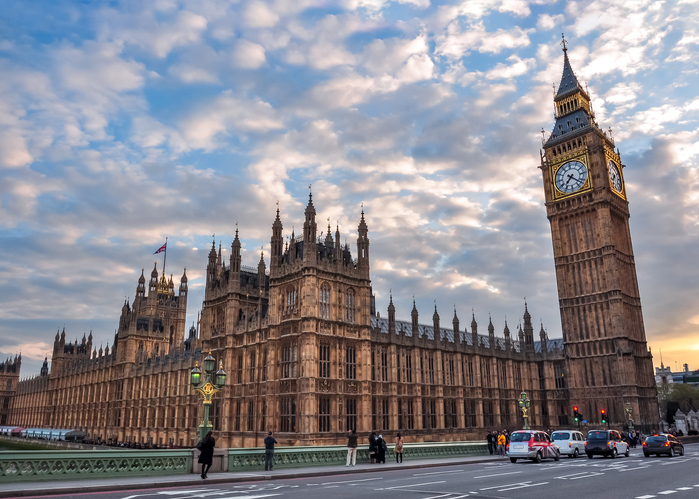Update on UK-EU Relationship
An update on the relationship between the UK and EU in a post-Brexit world, as tensions rise over Northern Ireland.
Northern Ireland
On 13 June, the UK Government published the Northern Ireland Protocol Bill. If made law, this would immediately disapply elements of the Northern Ireland Protocol, as well as granting UK Ministers the power to switch off further parts of the Protocol and the EU-UK Withdrawal Agreement. Further, Ministers would be empowered to make new trade agreements for Northern Ireland, replacing those established by the Protocol, in order to safeguard social or economic stability in Northern Ireland, the territorial or constitutional integrity of the UK, the functioning of the Belfast Agreement, and various other purposes.
The Bill allows Ministers to change how the Protocol applies in five key areas:
- Movement of Goods: removing checks and paperwork on “green lane” goods – goods which are moving from Great Britain to Northern Ireland that are not at risk of moving into the EU.
- Regulation of Goods: introducing a new regulatory regime, allowing Northern Irish companies to choose whether to apply the EU or UK regulatory regime for goods.
- VAT and Excise: allowing VAT and excise rate changes in Great Britain to be applied in Northern Ireland – currently, the EU’s VAT rules apply to the sale of goods in Northern Ireland.
- Governance of the Protocol: removing the roles of the Court of Justice of the EU and the European Commission, in enforcing EU rules and settling Protocol disputes, and monitoring the UK’s application of EU law in Northern Ireland, respectively.
- State Aid/Subsidy Control: bringing Northern Ireland fully within the UK’s new subsidy control regime – currently, Northern Ireland is subject to the EU’s state aid regime regarding trade in goods.
European Commission Vice President Maroš Šefčovič has accused the UK of breaking international law. The UK Government has summarised its legal position, stating that its non-performance of Protocol obligations is justified under the doctrine of necessity. The European Parliament held a debate on “The UK government’s unilateral introduction of the Northern Ireland Protocol Bill and respect for international law”, at which MEPs presented a united front against the UK Government’s actions – however, no resolution was adopted on the topic.
The European Commission has also announced its plans to proceed with legal action against the UK Government, for failing to fully apply EU law in Northern Ireland. These proceedings were first initiated in March 2021, but had been on hold while negotiations were ongoing.
The UK Prime Minister’s resignation as leader of the Conservative party, announced on 7 July, has not affected consideration of the Bill by Parliament, with consideration in committee having commenced on 13 July. Opposition parties have attempted to amend the bill, but have been unsuccessful.
One area on which there appears to be limited agreement between the EU and UK is the PEACE PLUS programme. Co-financed by the EU, UK, Ireland and Northern Ireland, the programme will see around one billion euros being invested into Northern Ireland and the border counties, with the aim of strengthening peace and cross-border cooperation.
Rwanda
The Home Affairs Committee held a session on Migration and Asylum, with a particular focus on the UK Government’s Rwanda Policy – you can read more about this policy here. Witnesses included the chief executive of the Refugee Council, a director of Asylum Aid, and a casework manager at Medical Justice, all of whom voiced their concerns over the efficacy and fairness of the policy.
The Committee’s report set out that “much more clarity is required on the new plan to relocate some migrants from the UK to Rwanda. There is no clear evidence that the policy will deter migrant crossings”. They further recommended that the UK Government negotiate preventative measures with France and return agreements with EU countries more generally, and that the Home Office demonstrates the steps it will take to protect the wellbeing of those sent to Rwanda.
Free Trade Deals
The Environment, Food and Rural Affairs Committee has published a report on the food and agriculture elements of the UK-Australia Free Trade Agreement. The report concluded that the UK Government should commit to upholding animal welfare and environmental standards in all post-Brexit trade deals. The UK Government estimates that this trade deal will boost the UK economy by £2.3 billion by 2035, but concedes that the British farming sector is likely to suffer due to the removal of tariffs on Australian beef and sheep meat. The report therefore called on the UK Government to allocate additional support to farming exports.
The International Trade Committee also examined the UK’s trade deal with New Zealand, with frequent comparisons being made to the Australia deal. The high environmental standards set by the New Zealand deal and the New Zealand government’s focus on green food production were given particular attention.
Financial Services Regulation
The Treasury Committee has produced a report on the future of financial services regulation in the UK. The Committee found that the UK had a significant role in framing EU regulation on financial services, and so a drastic departure from this regulation is unlikely to be necessary. However, Brexit does provide the UK with opportunities to simplify and tailor the regulations to the UK market, while bearing in mind the need for compliance with international standards.
Divergence from EU Regulation and the Brexit Freedoms Bill
The European Scrutiny Committee has launched an inquiry into the benefits and challenges to UK businesses and the economy of diverging from EU regulations. The Government has described post-Brexit regulatory reform as a unique opportunity to make the UK’s regulatory regime more competitive. The Brexit Freedoms Bill, included in the Queen’s Speech, is expected to capitalise on the UK’s newfound regulatory autonomy.
Key Dates for 2022
- The grace period for Great Britain to Northern Ireland trade in chilled meat products and food safety paperwork had been extended indefinitely, while negotiations regarding the Protocol were ongoing. This grace period is now in doubt, given recent events.

